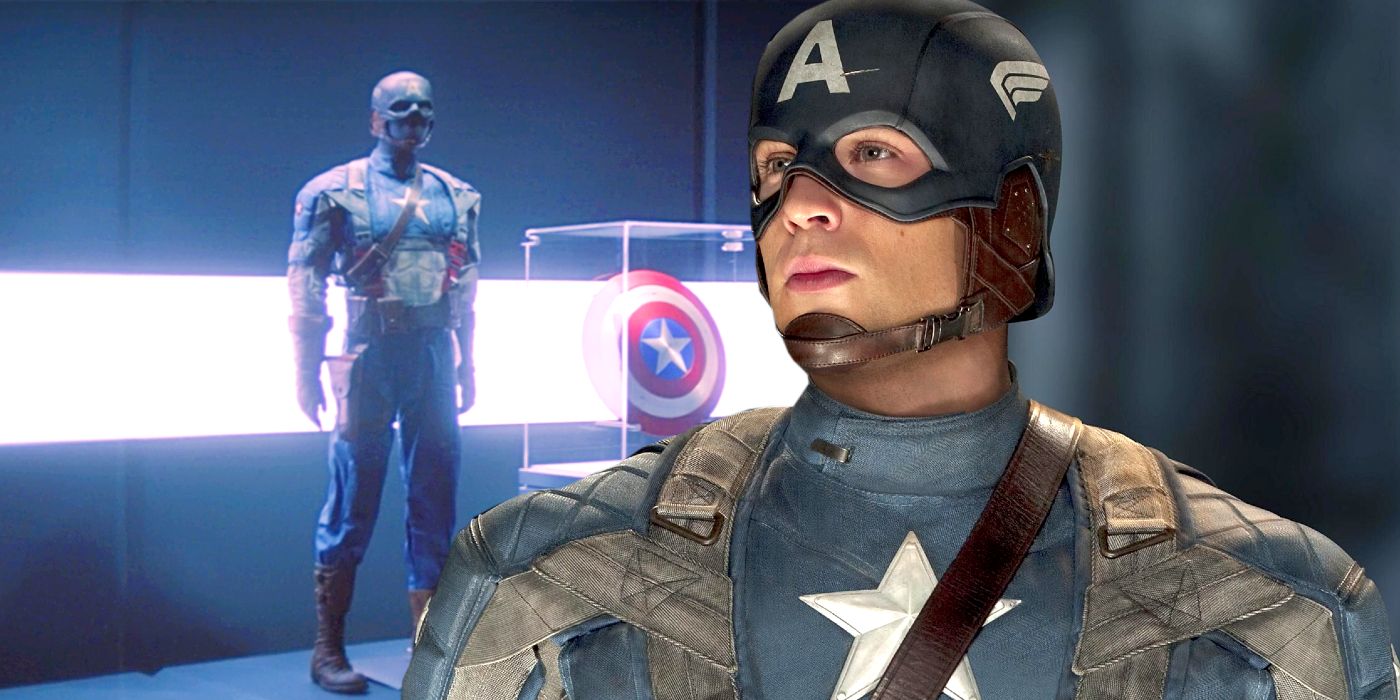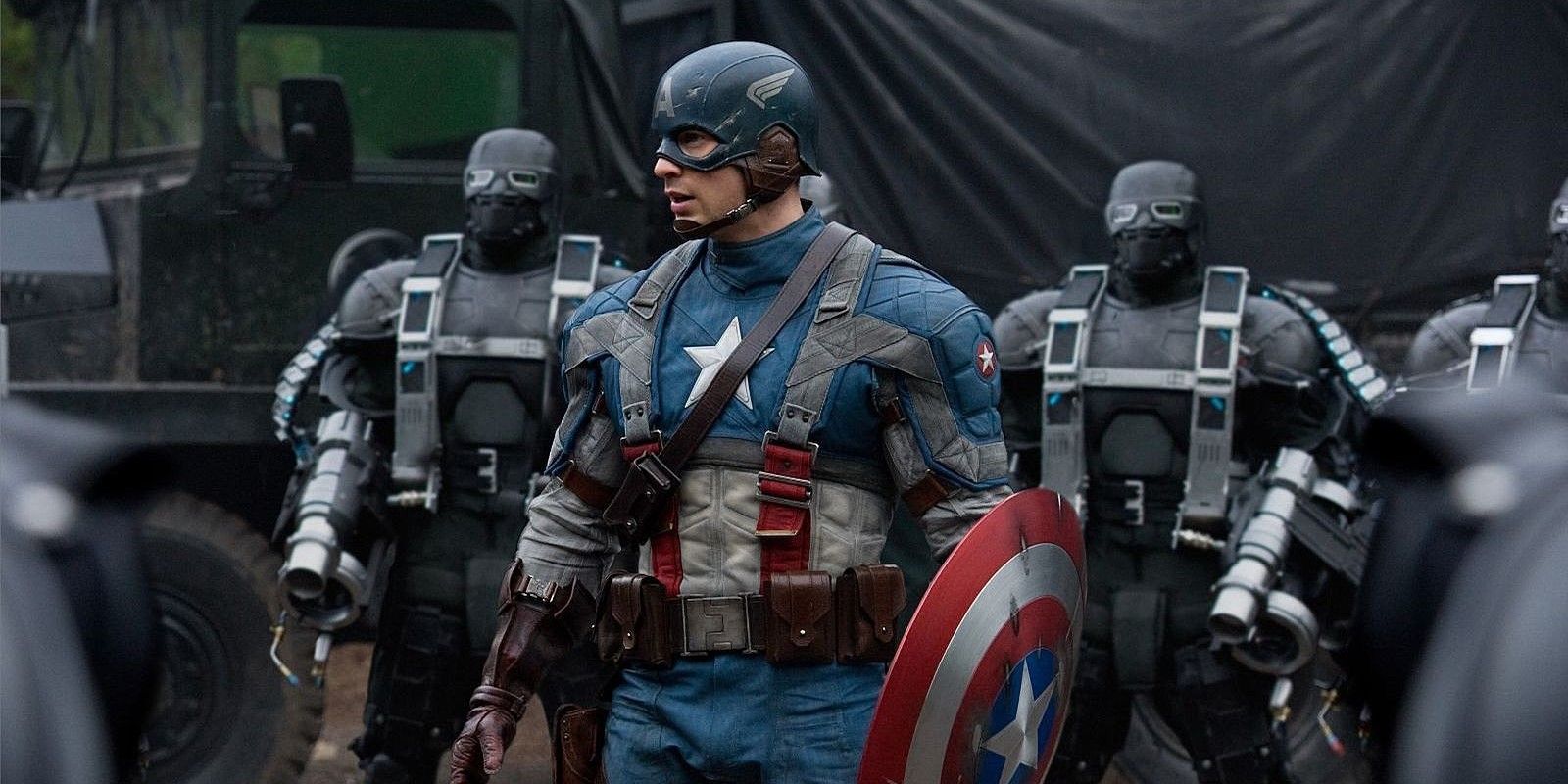
A new Captain America exhibit goes on display in The Falcon and the Winter Soldier episode 1, and it confirms which version of Cap is seen as the definitive one in the MCU - at least in the eyes of the government. Avengers: Endgame gave a happy ending for Steve Rogers, allowing him to go back to another timeline and live a full life with Peggy Carter, before returning as an old man to give Falcon the Captain America shield. It's unclear just what has happened to Captain America since Endgame, but his legacy weighs heavy on Falcon & Winter Soldier, a show that's defined by his passing of the mantle.
It's that passing which leads into Captain America's appearance in The Falcon and the Winter Soldier, both the old one and an updated version. Sam Wilson decides to give the shield back, believing that it's a time for new heroes. That leads into the ending reveal of a new Captain America, John Walker (played by Wyatt Russell), but there's also an updated showcase for the original Cap at the Smithsonian, with the shield as its centrepiece.
While there's a lot of memorabilia in the exhibit, next to the shield is Captain America's suit from Captain America: The First Avenger, which is the costume he wears later in the movie when truly becoming the Cap who goes onto the front lines and fights against HYDRA. Very much a classic Captain America costume, it fits with the World War II era of his MCU debut, and it makes the most sense as the one to be next to his shield in the Smithsonian, even if it's not the same costume that he had with that shield. This is, after all, ostensibly the purest version of Captain America as far as the means for which he was created goes, so obviously it's the one the exhibit would use.

To that end, then it shows the difference in terms of what Captain America is or means in the eyes of the U.S. Government, and then what he really means to those who know him, to the people, and to MCU viewers too. Captain America isn't just a super-soldier, but someone who is supposed to represent the best of American ideals and values. The MCU's Steve Rogers went on a complicated journey in that regard, as he went against the government's wishes in Captain America: Civil War, refusing to sign the Sokovia Accords and eventually having to go on the run.
To the government and the historians putting together the exhibit, then that version of Captain America isn't the one they'd want to put on display, because he isn't the "real" representation of what Cap is to them. That isn't a fair notion, because the Captain America who fights against the Accords, goes underground, and comes back in Avengers: Infinity War is very much the same one in terms of what he fights for, but it ties into ownership of the "character".
This then sets up Falcon & Winter Soldier episode 1's ending twist. Falcon has given up the shield, and while he has his own motivations for doing that, it's also perhaps clear that the government wouldn't agree the shield was his anyway, nor Steve Rogers' to give up (if he could even prove how he got it). With John Walker, the government can take things back to what it thinks Captain America should be and reclaim that ownership, and that's reflected in the Cap costume on display.
from ScreenRant - Feed https://ift.tt/3lG85Jz

0 Comments